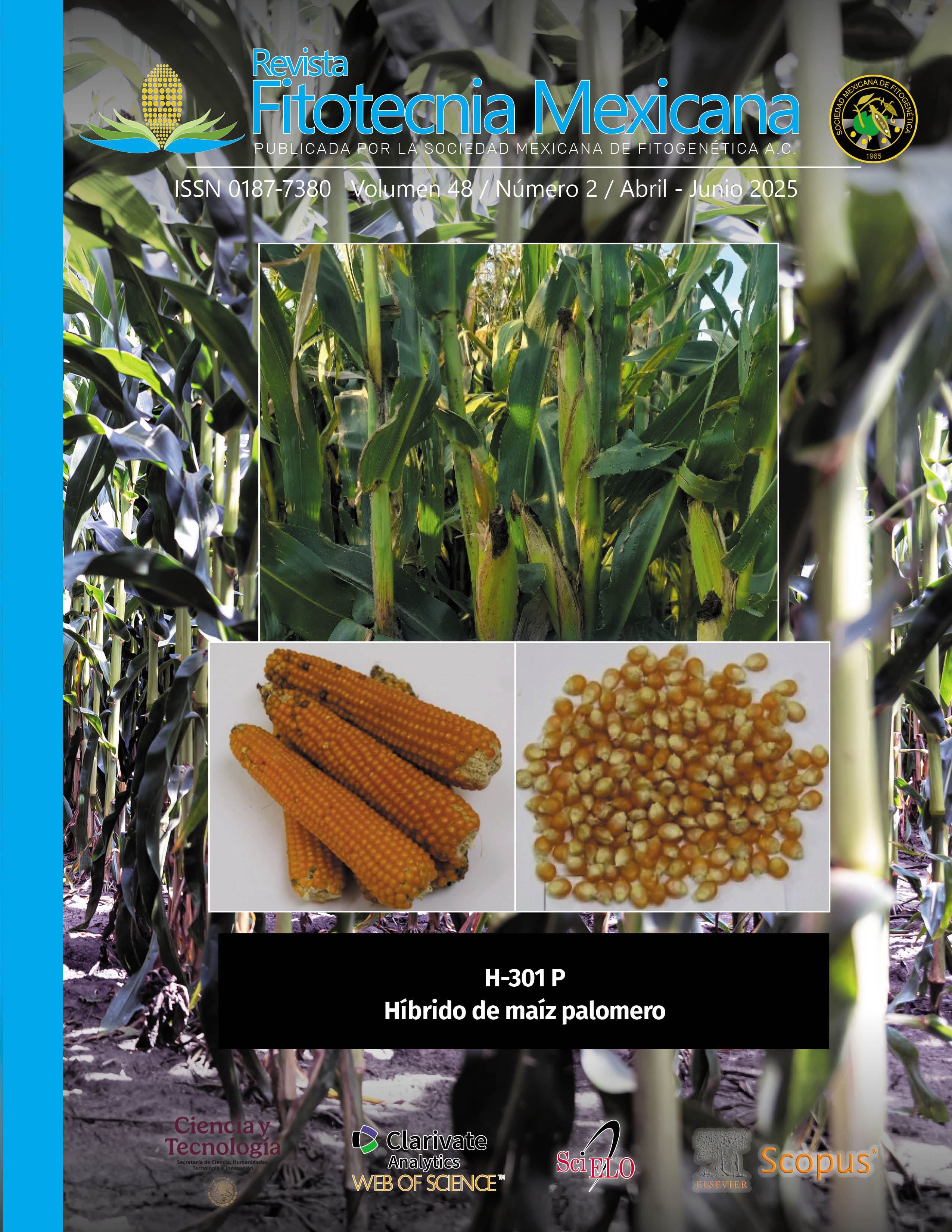EFFECT OF MECHANICAL WEED MANAGEMENT ON MAIZE YIELD IN HIGH LANDS OF MEXICO
Main Article Content
Abstract
It is important to keep the maize crop free from weed competition, especially during the first 40 days of the growing season. Failure to do so may result in losses of up to 80 % in grain yield, increased management and harvesting costs, and poor quality. In order to have non-chemical alternatives for weed management, different implements for mechanical control were evaluated and compared with two controls in plots under a randomized complete block design. The treatments were: T1) check (without weeding), T2) manual control, T3) Ridge 2 hiller, T4) manual milling machine, T5) rotary plow-groundblaster, and T6) cultivator + hilling machine coupled to tractor. It was found that the control with Ridge 2 hiller had an efficacy of 73.24 % and the grain yield of the crop was 6600 kg ha-1, while the other mechanical treatments had values higher than 67.00 %. The use of implements for mechanical control is a viable alternative to reduce the use of synthetic herbicides; however, it is necessary to implement an integrated management involving other activities and tools or inputs.

